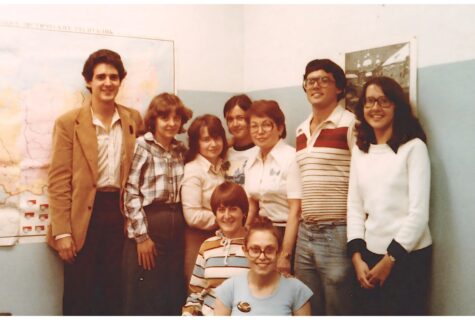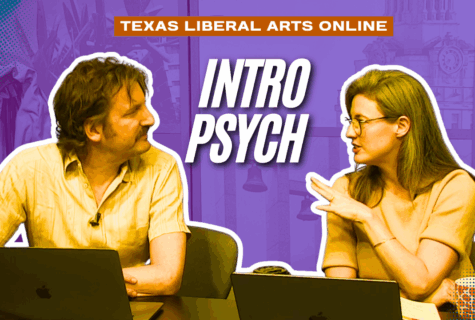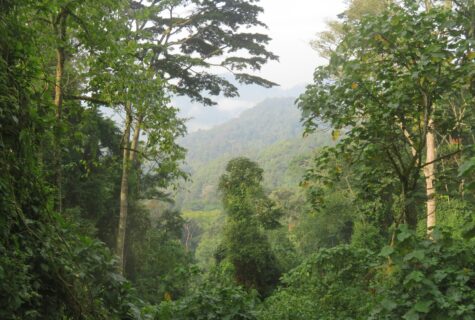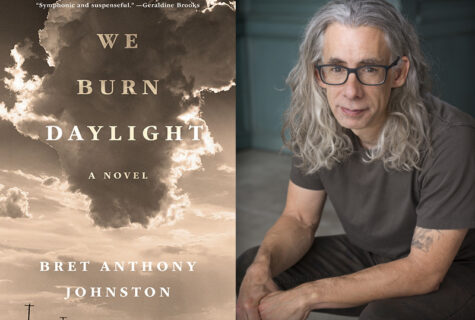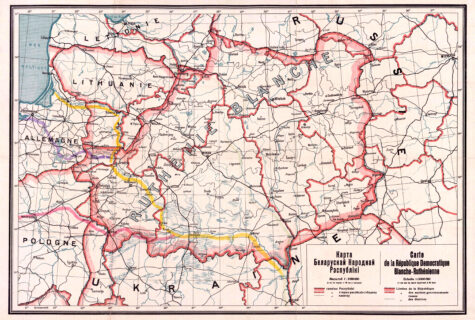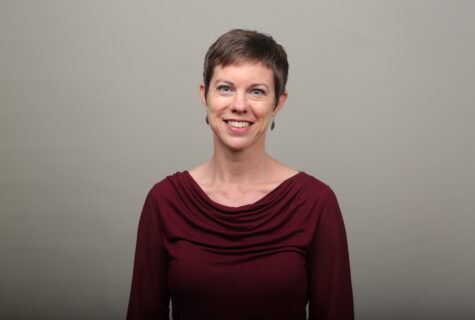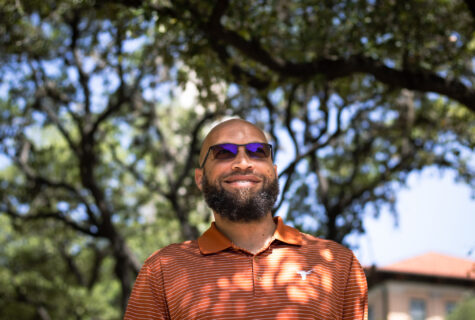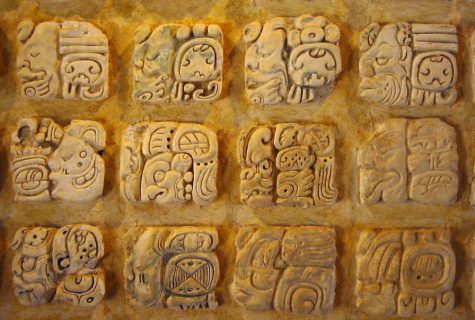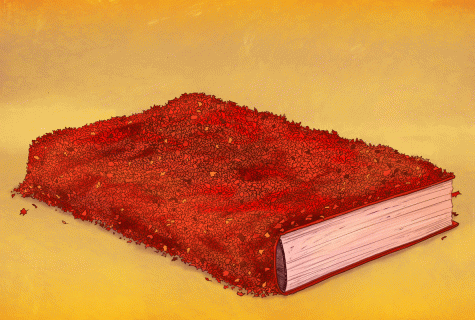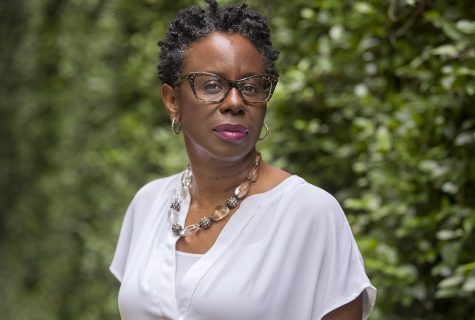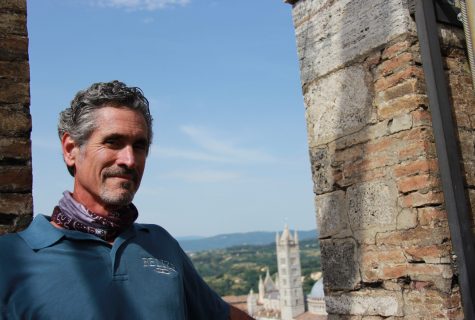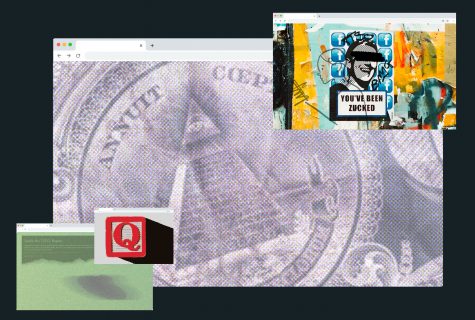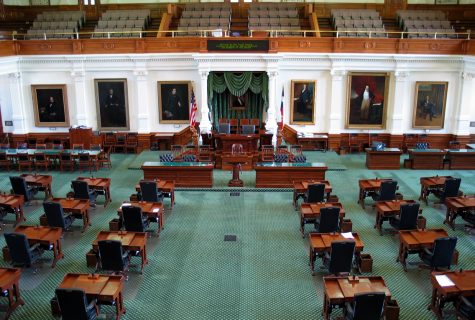Thomas Jesús Garza reflects on four decades of travel to a changing nation
Got Five Minutes? Learn About Psychology with COLA’s New Video Series
We took an interactive online version of “Introduction to Psychology” and turned some of its most intriguing insights into short YouTube videos
People of the Park
Brenda Boonabaana draws lessons from Uganda’s ecotourism industry
Don’t Call It a Cult
Bret Anthony Johnston on his new novel, “We Burn Daylight”
Who’s Counting?
Anat Schechtman on non-quantitative notions of infinity
Democracy Then
Classicist Naomi Campa on how studying the past can illuminate the present.
Falling for Vertigo
Students in Doug Bruster’s “‘Vertigo’ In Context” course take film analysis to new heights.
How Maps Can Kill: Lessons in Critical Cartography
Steven Seegel exposes the distortions, biases, and hidden agendas behind the seemingly objective art of cartography.
The Clothes Make the Manuscript
In “Fashioning Spanish Cinema: Costume, Identity, and Stardom,” Jorge Pérez decodes Chanel suits and starched shorts in Spanish cinema.
Building a Sense of Belonging: Q&A with Stephanie Holmsten
The word “mentorship” conjures an image of a seasoned professional taking a novice under their wing. But Stephanie Holmsten’s primary focus is on creating communities where faculty of all experience levels can learn from each other.
Laws of the Lands: Exploring the World’s Constitutions
There are almost two hundred countries with constitutions currently in existence, and their contents vary considerably. The Comparative Constitutions Project has been documenting and analyzing them for almost two decades, creating a set of resources for scholars and non-scholars along the way.
The Science of Teaching Science: A UT Austin-Thinkery Partnership is building better science education for kids and communities
Cristine Legare studies how children learn and how to make informal learning exhibits more engaging and impactful for people of all ages.
How the Right Words Could Improve Policing
Could a simple sentence build trust and foster better communication between police officers and the communities they serve?
The Turnaround: COLA’s UTurn program helps struggling students get back on track
UTurn offers academic coaching, peer mentoring, and a dedicated space where students in the program can study, socialize, and support each other. “Most 18–20-year-olds have been almost programmed to think just about getting an A,” says program coordinator Ben Burnett. “And I’m trying to program them to think about themselves and what is the best path for them.”
The Danger Imperative: Reckoning With the Perception of Violent Threat in American Police Culture
In July 2016, a gunman ambushed Dallas police officers, killing five, injuring an additional nine (along with two civilians), and fueling public rhetoric about a so called “war on cops.” At the time of the Dallas shooting, Michael Sierra-Arévalo, now an assistant professor of sociology at The University of Texas at Austin, was doing fieldwork […]
The Sequencing of our Success: Q & A with Kathryn Paige Harden
In her book, The Genetic Lottery: Why DNA Matters for Social Equality, psychology professor Kathryn Paige Harden explores how genes contribute to variation in complex life outcomes such as educational attainment and income level. She argues that understanding genetic impacts on these outcomes could and should be used to promote greater equity among individuals with […]
Spring Books Unfold
Disentangling: The Geographies of Digital DisconnectionOxford University Press, July 2021Edited by Paul C. Adams, Professor, Department of Geography and the Environment, and André Jansson, Karlstad University After the rapid rise of digital networking in the 2000s and 2010s, we are now seeing a rise of interest in how people can disentangle their lives from the […]
The Linguistics Research Center Celebrates 60 years of Innovation and Scholarship
Imagine a website that allows people from a variety of academic and non-academic backgrounds to learn ancient languages and research their histories. Now imagine it existing in 1999, way back in the early years of the internet. That’s the year the Linguistics Research Center (LRC) launched its free, online lesson series. The internet was a […]
Leaf Through a Good Book
Keep your to-read list up-to-date with our fall book list, featuring a selection of titles from College of Liberal Arts faculty members and alumni.
Balancing Art and Academia
Lisa B. Thompson is doing great. Not “all right” or “pretty good under the circumstances” or any other common COVID-era reply to the question of “how are you?” Just great. And it’s not surprising. Her life of late is series of awards, achievements and new projects so plentiful that it’s honestly a bit hard to keep track of them all.
Podcast Roundup: Fall 2021
This is a collection of some of our favorite podcasts from liberal arts faculty members. Don’t forget to rate, review and subscribe.
Maya and Angkor Adapted for Climate Change
Societies in Mesoamerica and Southeast Asia whose collapse was thought to have been caused by dramatic changes in climate displayed more resilience and adaptability than previously believed.
The Misinformation Age
Depending on whom you ask, conspiracy theories are either having a heyday or it’s just business as usual. But whether or not there is a long-term increase happening, certain factors likely influence the ebb and flow of conspiratorial beliefs.
A Texas Politics Explainer
Many Texans learned a new word this year: quorum. And, no, it’s not the collective noun for a group of opossums. A quorum is the minimum number of assembly members that must be present in order to conduct business. For the Texas House of Representatives, that minimum is two-thirds of its members.
Making the Most of Self-Care
March marked the one-year anniversary of the WHO declaring COVID-19 a global pandemic, and to say that it’s been a rough year would be an understatement. Whether we’ve lost loved ones, jobs, or simply the ability to distinguish between Sundays and Mondays, everyone is struggling under the weight of a constantly shifting “new normal.”
